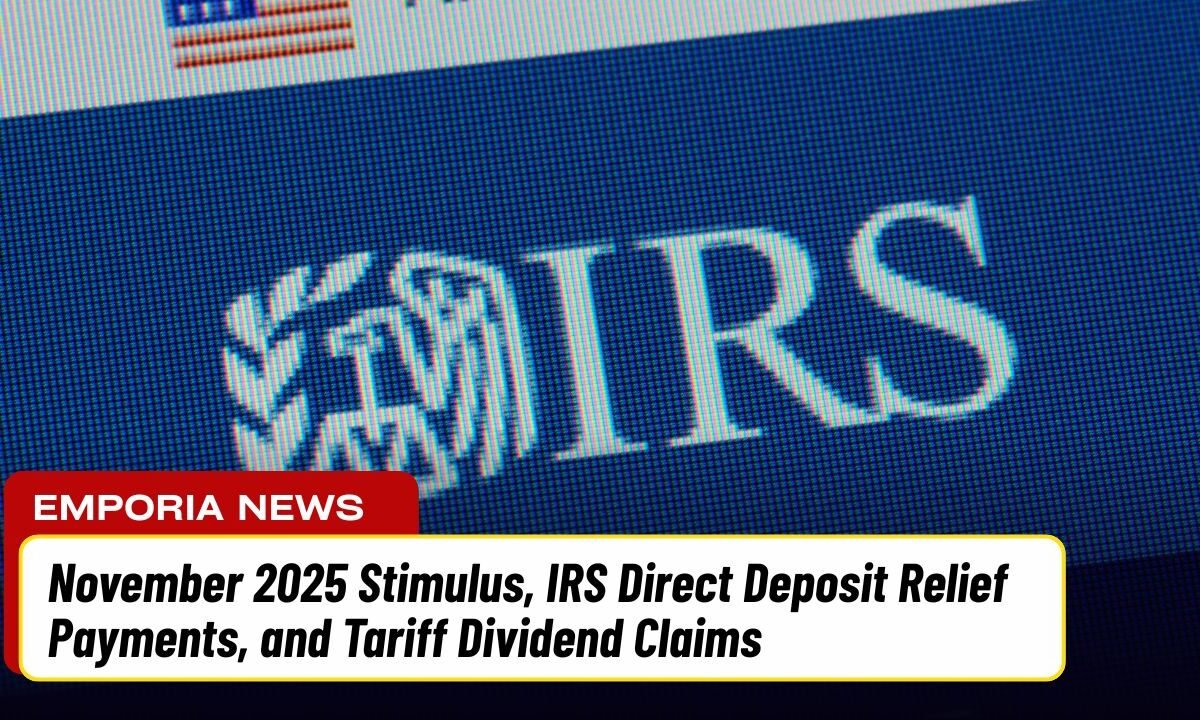Right now, despite widespread online chatter, there is no legislation authorising new federal stimulus payments this year.
That means no official word from the Internal Revenue Service (IRS) on imminent checks, and no action has been taken by United States Congress to approve additional payments.
Last Major Economic-Impact Payments
The most recent round of economic impact payments was issued in 2021. Any future disbursements would depend entirely on Congress approving fresh legislation.
In 2024, the IRS processed automatic payments for those eligible individuals who did not claim the Recovery Rebate Credit on their 2021 tax returns — up to $1,400 per person.
These payments were sent between December 2024 and January 2025 via direct deposit or paper check, with letters notifying recipients of the payment. The final deadline to file a 2021 tax return and claim that credit was April 15, 2025, and there were no extensions offered.
Proposed Tariff-Dividend Idea from Former President
Former President Donald Trump has publicly suggested that tariff revenue could be turned into “dividends” — at least $2,000 per person, excluding high-income earners.
In a post on his social platform, he described the U.S. as a “richest and most respected nation,” cited low inflation and strong markets, and pledged to begin reducing the national debt (currently around $37 trillion) with leftover dividend funds.
To date, this remains just a proposal: no legislation has been passed and no payments authorised.
Scams, Rumours & State-Program Mix-ups
Numerous online claims about receiving payments of $1,702 or $1,390 often stem from confusion with state-run programmes (such as Alaska’s Permanent Fund Dividend) or are outright scam attempts.
The IRS continues to warn the public about bogus messages and fake stimulus payment announcements designed to steal personal information.
How to Identify an IRS Scam
The IRS offers clear guidance on how to avoid falling victim to scams:
- The IRS will never initiate contact through email, text messages or social media to demand personal or financial details.
- Official IRS communications begin with a written letter (sent by postal mail) and can be verified via an IRS Online Account or through their customer-service lines.
- Any follow-up calls from agents will not include threatening or pre-recorded messages demanding immediate payment.
- Private collection agencies can only call after a written notice and must include a legitimate Taxpayer Authentication Number on collection notices.
- The IRS has mostly ended unannounced on-site visits by revenue officers to increase safety and transparency.
Although the idea of additional stimulus payments before year-end may be tempting, no official approval or scheduling exists at this time.
Any future payments would necessitate formal legislation by Congress and confirmation from the IRS. In the meantime, remain alert to scam attempts, and only trust verified channels for IRS communication.
FAQs
Has the IRS announced any new stimulus payments for 2025?
No — the IRS has not confirmed any new stimulus payments, and Congress has not passed legislation authorising them.
What was the last time stimulus payments were issued and who received them?
The last major economic-impact payments were issued in 2021. Additional automatic payments tied to the 2021 Recovery Rebate Credit went out in December 2024 and January 2025 to individuals who had not claimed the credit.
How can I tell if a message about stimulus payments is a scam?
If the message claims to be from the IRS but arrives via email, text or social media and asks for personal info or payment — it is a scam. Legitimate IRS contact begins with an official letter; you can verify with an IRS Online Account or phone support.




